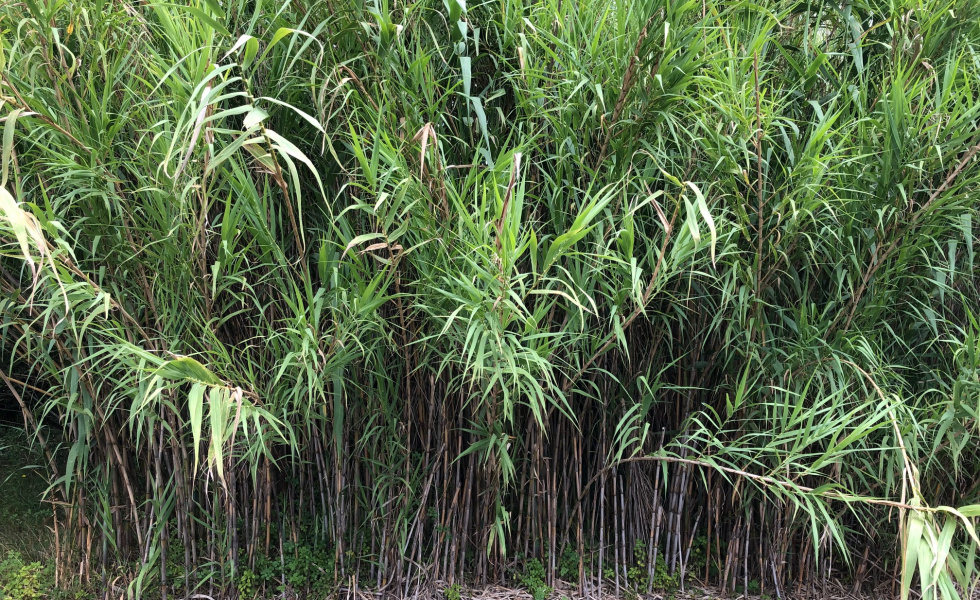Everybody is familiar with “Provence cane”, by that or another name.
This giant reed borders gardens, ditches, roads, highways, banks, and even the smallest wetland areas. Its abundance and essentially local name (to the south of France) have led us to consider this plant species as a common and naturally present plant in our environment.
Nevertheless, Provence cane is quite deceptive. Scientifically known as
Arundo donax, this plant is not native to the South of France at all, but rather to Asia. Being extremely resistant to drought and Mediterranean winds, the Arundo donax cane has adapted well to our local conditions. Moreover, it is a very dynamic plant that competes with local flora.
Its long, fibrous, interconnected root systems are
a formidable obstacle to ecosystems and affect their natural functioning. Arundo donax grows 2-5 times faster than its native competitors, and its rapid reproduction enables it to invade new areas and completely overtake indigenous vegetation. Lastly, the cane is extremely combustible, which increases the likelihood and intensity of fires. Also, this species grows back 3 to 4 times faster than native plants.
In fact, it is listed as a species covered by Europe’s Code of Professional Conduct on
Invasive Alien Plants.
The laboratory of Bio-inspired Chemistry and Ecological Innovations (ChimEco) and Bioinspir have partnered with the
Occitanie Region,
Montpellier Méditerranée Métropole, and
SERM (the Montpellier regional public works company) to set up a
vast program to manage Provence cane in a sustainable manner.
A carefully controlled technique involving repeated mowing will be used to eradicate the plant at a pilot demonstration site, the
Euromedicine Biopole science park in Grabels (just north of Montpellier), a Montpellier Métropole facility housing
ChimEco and
Bioinspir.
This technique will affect the species’ vegetation dynamics and make it possible to recreate habitats for native species. To manage the effort over the long-term, economically viable recovery of harvested parts will be developed by ChimEco and Bioinspir in a manner that is consistent with their initial ecological efforts.
The program started at the end of February 2022 and will run through the fall.
Find out more about ChimEco and BioInspir



